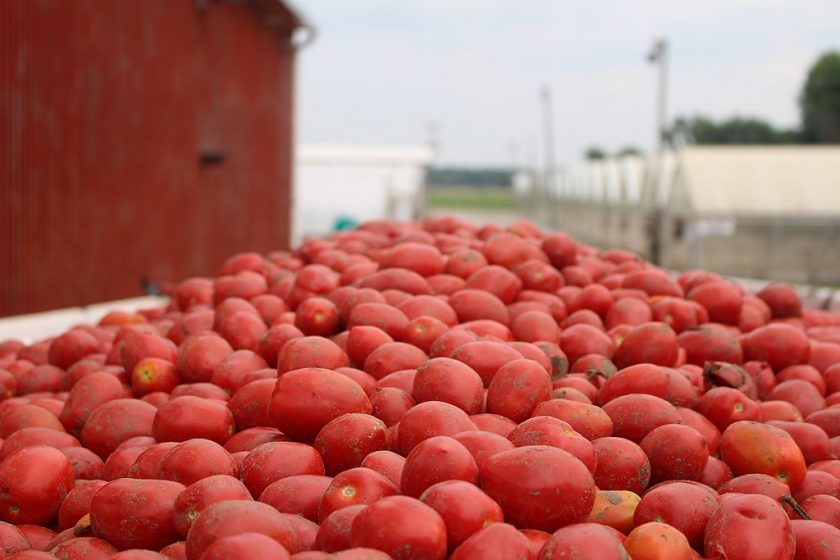Climate Change is Coming for Your Ketchup
June 15, 2022

Climate change is on track to interfere with tomato production – and could be especially bad news for fans of ketchup, pizza sauce and other processed tomato products.
According to a study published in Nature Food, rising temperatures are projected to lower yields around the world for “processing tomatoes” – the cultivar used in ketchup and other tomato products. By 2050, the global supply of processing tomatoes is expected to decrease by 6% compared to the study’s baseline of 1990-2009, with Italy’s crop being among the hardest hit.
“The processing tomatoes are grown in the open fields, which means that we cannot control the environment in which they grow. This makes the production vulnerable to climate change,” said lead author Davide Cammarano, a professor at Aarhus University.
Researchers from The University of Texas at Austin, Purdue University, the University of Salerno, the University of Florida, and NASA Goddard Institute for Space Studies also collaborated on the study.
Study co-author Dev Niyogi, a professor at the UT Jackson School of Geosciences and Cockrell School of Engineering, said that while the climate’s impact on the food supply is widely researched, most of the focus has been on staples such as wheat and rice. This study is among the first to take a global look at climate change’s impact on tomatoes.
“We know very little about how climate change will affect specialty crops, like the processing tomato, which has an incredible global food footprint, along with being an important source of nutrients and an ingredient in cuisines around the world,” Niyogi said. “This study is one of the first such global studies and this makes it unique.”
The researchers used five different climate models to inform three different scenarios projecting how rising temperatures will influence tomato yield, focusing in the world’s top three tomato-growing countries: the United States (California in particular), Italy and China. Together these countries produce about 65% of the world’s processing tomatoes.
Although the outcomes varied in degree, the projected scenarios all pointed to a future where tomato production will dramatically change within the coming decades.
Most scenarios show the three countries experiencing steady yield declines over the next 30-40 years. In the paper, the researchers detail different factors that might worsen or mitigate the situation depending on the country. For example, both southern California and Italy face water access issues in addition to rising temperatures, with Italy projected to only become drier over time. This combination of warmer temperatures and lack of water doesn’t bode well for the Italian tomato industry as a whole, said Cammarano.
“A significant number of the processing tomato industries currently are placed in Italy, and they need to prepare for a future with a limited supply of tomatoes from local regions,” he said.
However, for California and China, there might be a silver lining when it comes to northernmost areas, which are cooler. . Temperature increases in these areas may lead to an increase in yieldsm with the studyprojecting steadily increasing tomato yields for the northern Chinese province of Gansu and the neighbouring country of Mongolia. However, even at their highest, the projected yields of these regions are just a fraction of what California and Italy currently produce.
Niyogi said the climate projections provided in the study raise important questions for the future of tomato production worldwide, and could help the agricultural and production industries prepare for the impacts of climate change.
“The findings from our study should become one of the elements in developing a vulnerability assessment,” he said. “This could help businesses and foundations help prioritize research and operational strategies for the future.”
The research was supported by the Jackson School of Geosciences and NASA.
For more information, contact: Anton Caputo, Jackson School of Geosciences, 512-232-9623; Monica Kortsha, Jackson School of Geosciences, 512-471-2241.
